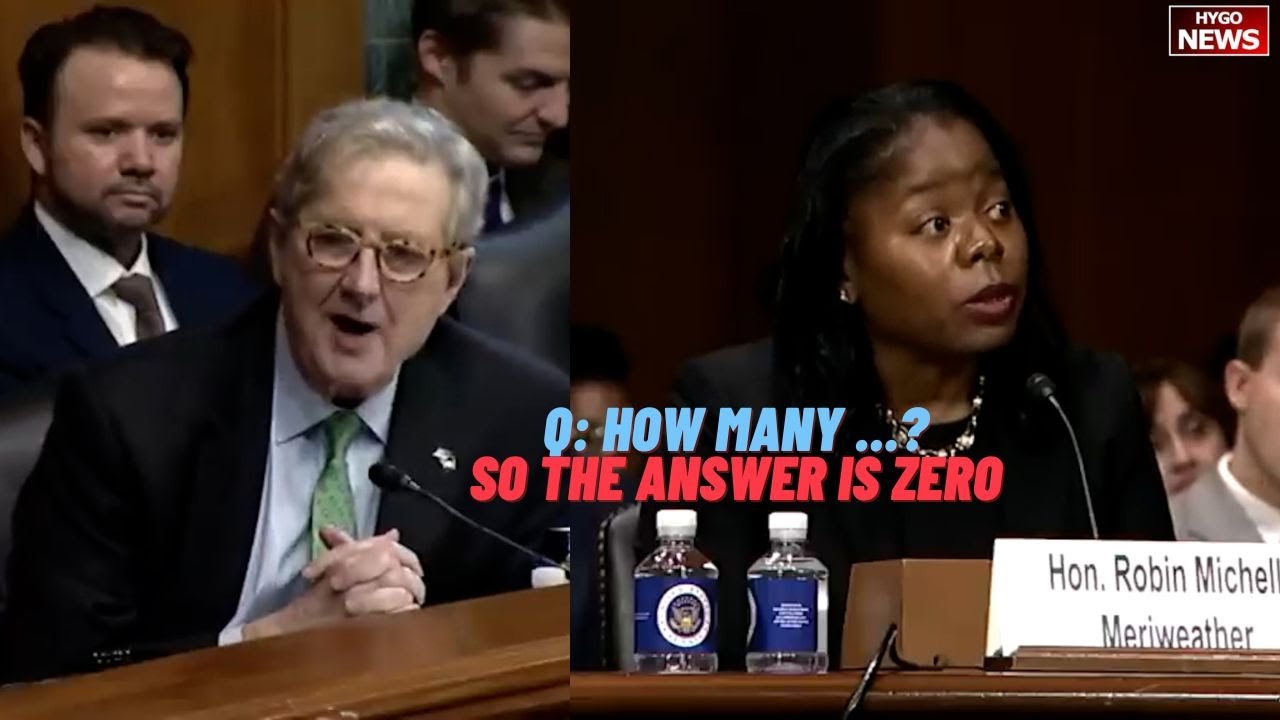On 1/24/2024, Senator Kennedy questions Meriweather in Judiciary.
Kennedy: Judge Meriweather, you’ve been nominated to the court of federal claims, is that right?
Witness: Yes, Senator.
Kennedy: How many motions have you argued in the court of federal claims?
Witness: I have argued hundreds of motions involving complex civil claims in numerous courts. The court of federal claims is not one of those courts,
Kennedy: okay? So the answer is Zero.
Witness: That is correct, Senator.
Kennedy: Okay, how many cases have you tried in the court of federal claims?
Witness: I have tried a civil case in the district court for the District of Columbia. Most of my cases have been resolved on motions. None of those cases have been in the court of federal claims, although they involve similarly complex matters under civil laws. So the answer is zero. That is correct, Senator.
Kennedy: What is the, tell me the grounds for granting a new trial in the court of federal claims?
Witness: All of the trials in the court of federal claims are bench trials, … if I were presented with a motion for a new trial should I be confirmed as a judge on the court of federal claims, I would, of course, consult the rules of the court of the court of federal claim.
Kennedy: So what are the grounds for granting a new trial?
Witness: My understanding is that a new trial, you would have to comply with the applicable rules.
Kennedy: I know that, but what are they? What are the grounds?
Witness: Senator, that is not an issue I have had occasion to consider before, despite my extensive civil experience and my familiarity not only with the federal rules of civil procedure, but I’ve also reviewed the rules of the court of federal claims. But if I were presented—I’m sorry, go ahead.
Kennedy: No, you go ahead.
Witness: I did not mean to speak over you.
Kennedy: That’s okay. You go ahead, and I want you to finish your answer.
Witness: So I would, if presented with that question should I be confirmed, I would again consult the rules and follow the precedent.
Witness: Trials are so infrequent in the civil context, and although I have presided over bench trials and a jury trial, I have not been presented with a motion to have a new trial, so I’ve not—
Kennedy: What’s a contract of adhesion? A contract, excuse me.
Witness: Senator, I’m familiar with contract law, the concept of contracts of adhesion.
Kennedy: Yeah, you’re going to say a lot of that. That’s what federal court of federal claims does. What’s a contract of adhesion, actually?
Witness: Senator, the court of federal claims does handle a lot of procurement cases. Those typically turn on interpretation. But I’m going to run out of time. What’s the contract of adhesion?
Kennedy: If you don’t know, just tell me,
Witness: Senator, Despite my extensive civil experience, including dozens of cases that include contract cases, I have not dealt with the question of what a contract of adhesion is. But should it be presented to me, I would sure you’ll look it up.
Kennedy: Okay. Do you remember a case, Judge, called United States v. Allen?
Witness: Yes, Senator.
Kennedy: You were reversed in that case, weren’t you?
Witness: I made a pre-trial detention decision for, I believe, five defendants. I believe that Mr. Allen was one of the defendants for whom the district judge disagreed, yes, ma’am. But you were reversed. My pre-trial detention ruling, I believe, was—
Kennedy: Do you remember a case called United States v. Johnson?
Witness: I have had multiple United States v. Johnson. Are you referring to the pre-trial detention in this case?
Kennedy: You had a defendant who was charged with … You remember it now?
Witness: Yes, Senator.
Kennedy: And you were reversed in that case, weren’t you?
Witness: I made a narrow decision in Johnston that he should be released for 21 days and placed on home incarceration so that he could get cancer treatment that he had been unable to receive.
Kennedy: Let him go out for 21 days, is that correct?
Witness: I don’t think that’s an accurate characterization.
Kennedy: That’s what the district court judge said.
Witness: The district court judge concluded that his life was not at risk because he had had the medical appointment that he had not had when he appeared before me before the appeal. So under those new facts, the factual predicate for my temporary release decision no longer
Kennedy: that’s not the way I read it.
Kennedy: Do you remember a case called United States v. Voucher and United States v. Patel? You were reversed in those cases too for trying to let somebody go, weren’t you?
Witness: In those two cases, my flight risk assessment under the Bail Reform Act, I believe, was reversed by the district judge.
Kennedy: I’m out of time. Thanks, Mr. Chairman.
https://www.facebook.com/HygoNewsUSA/videos/922559276075589
Kennedy: how many motions? answer is Zero; how many cases? answer is Zero; KJP: black women Judges DEI historic

